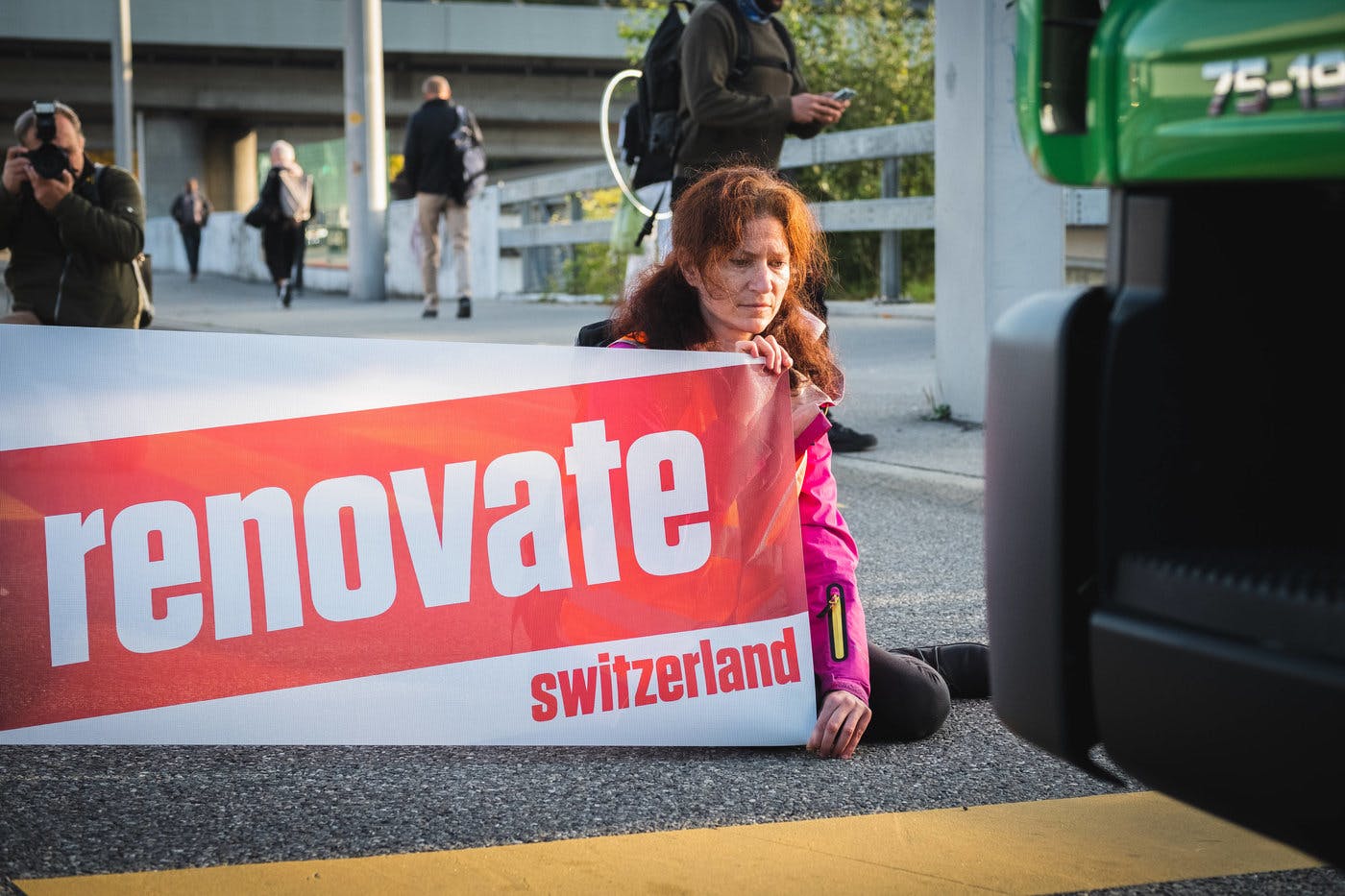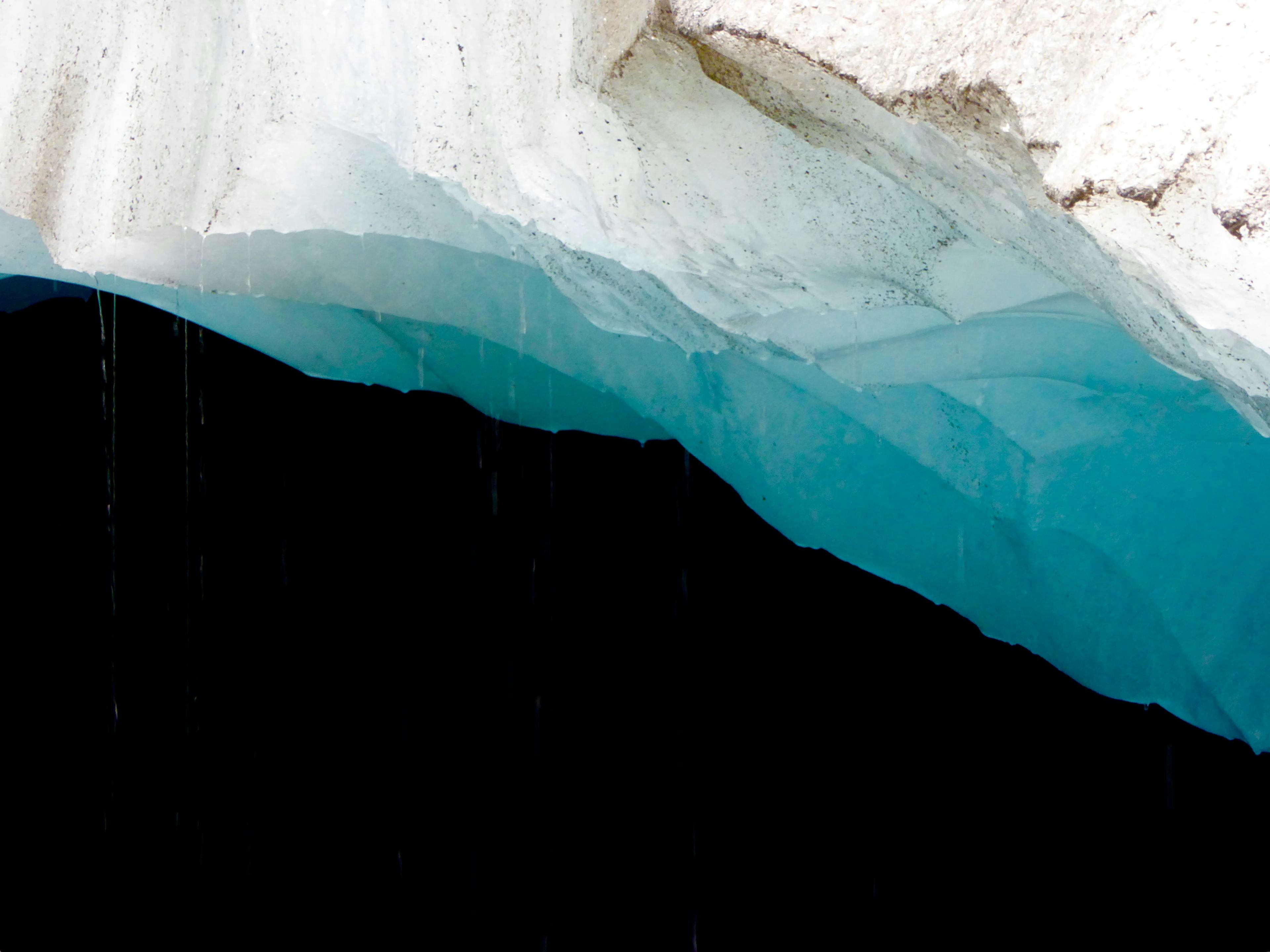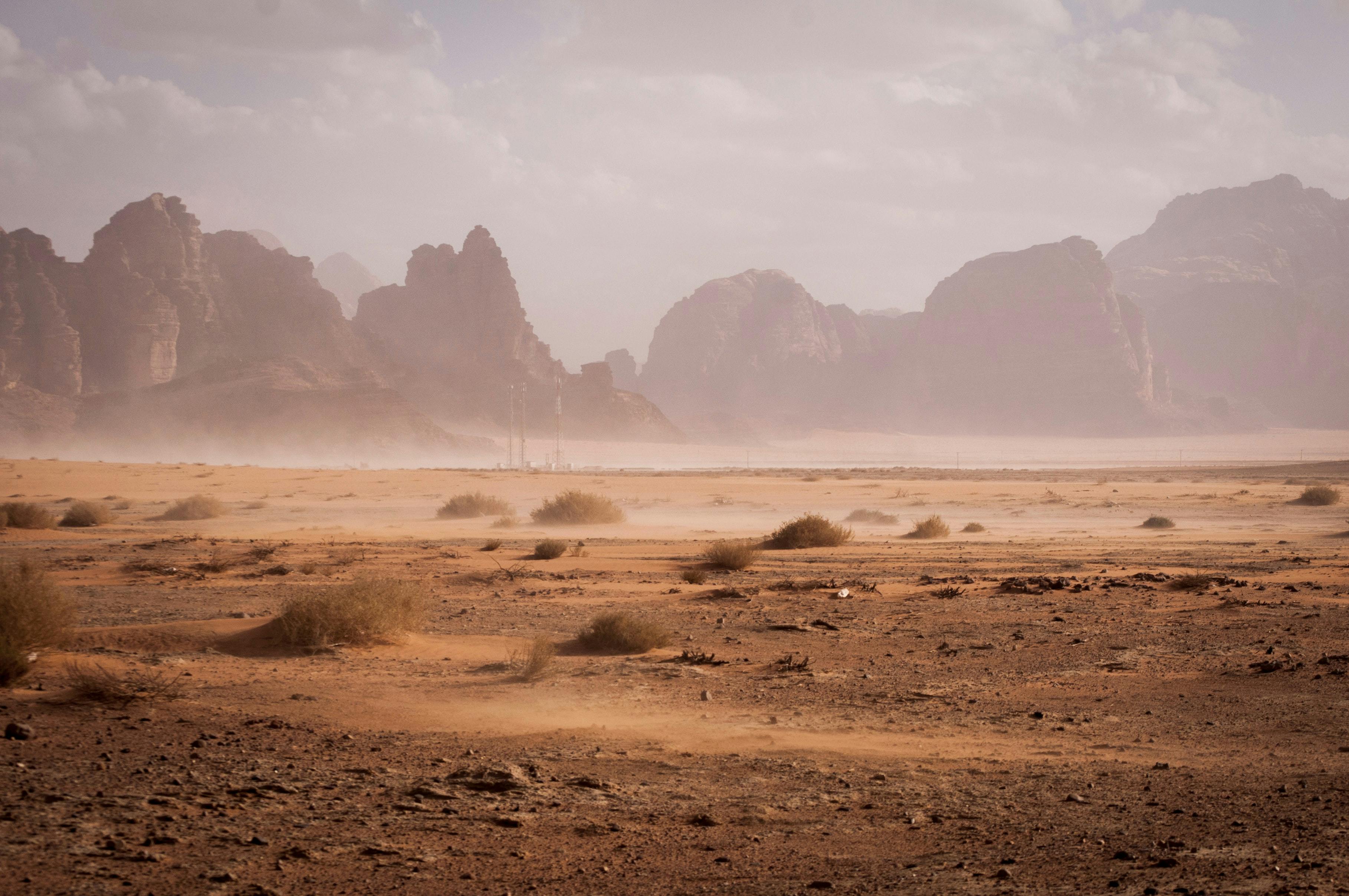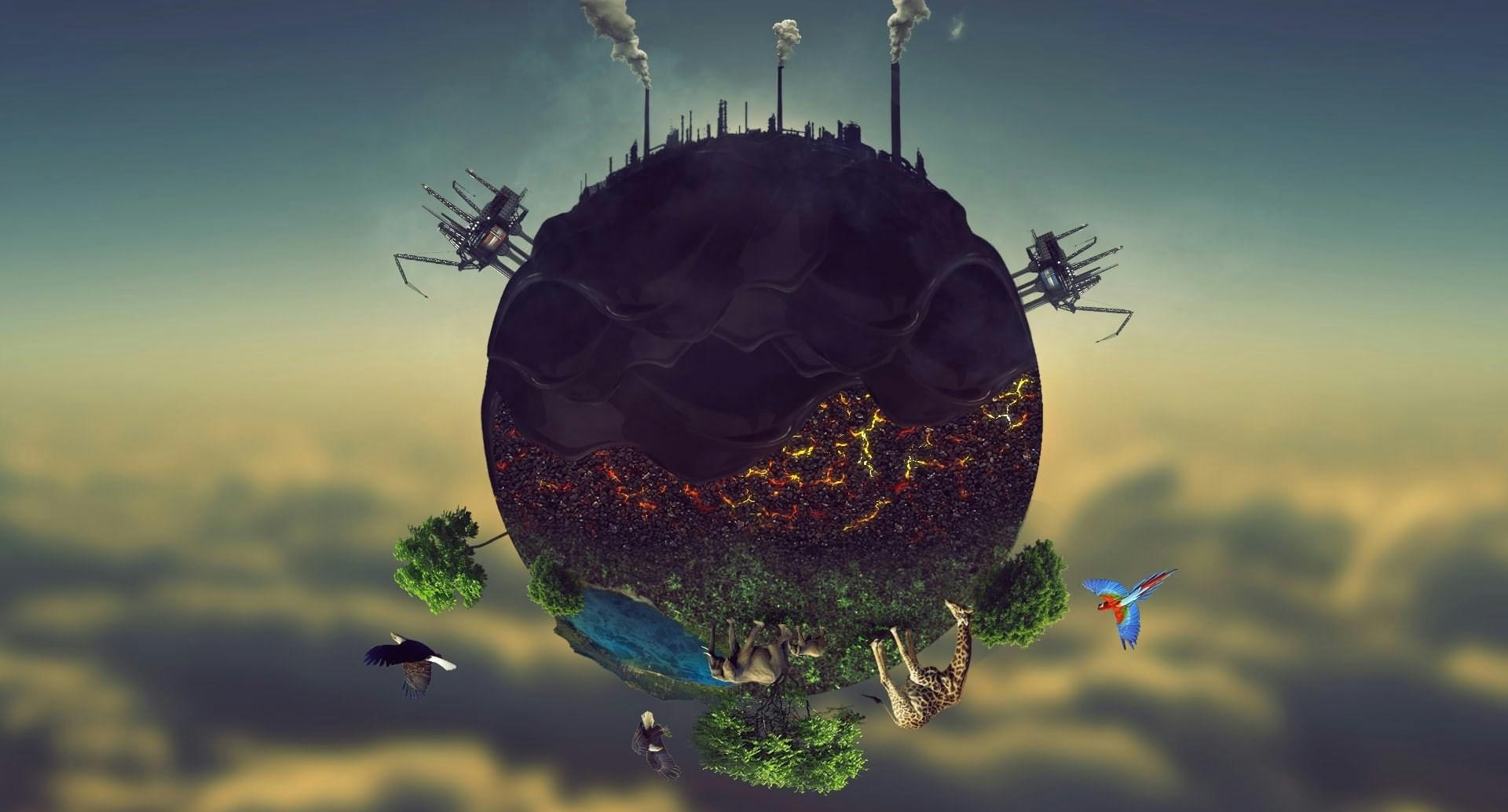This post is about the most likely consequences of climate change that I will live through during my life.
A Swiss Professor Glued her Hand to a Highway
October 2022, Julia Steinberger, a professor at the university of Lausanne, Switzerland, and writer of the 6th IPCC Assessment, glued her hand to the highway in Bern along with other people and was arrested by the Swiss police. What could lead a university professor to glue her hand to a highway? She was doing this act of civil disobedience to ask the Swiss government to enact a wider plan for renovating buildings so as to limit the emissions generated by Switzerland. Is the situation really so extrem that we now must resort to civil disobedience?

An MIT physics PhD and Swiss professor protesting on a highway.
Warming Scenarios
The IPCC has created emission scenarios for the years to come. In all the scenarios, the climate warms by 1.5°C at some point during the 21st century.
Let's take the intermediate emission scenario (SSP2-4.5: CO2 emissions around current levels until 2050, then falling but not reaching net zero by 2100) and explore its consequences.
What Time Do I Have Left on Earth?
I am 24 years old and live in Switzerland. My conditional life expectancy today is approximately 82 years old. This means that I have 58 years to live, which will bring me to 2080.
Consequences
What are the consequences that I might experience in my life? Are there reasons for me to glue my hand to highways in Bern?
The book Our Final Warning: Six Degrees of Climate Emergency by Mark Lynas lists the consequences that we will face in the 21st century, degree by degree. Here is a summary of the consequences for 2°C and 3°C which are the temperatures raises I will likely face during my life.

2041 to 2060: 2°C warmer
One and only good news: those conditions are survivable for most of humanity. Now here is what a two degrees hotter world looks like.
One third of all biodiversity disappears. We already live in what biologists call the 6th large mass extinction, caused by human activities (the 5th was when the dinosaurs disappeared), and climate change will only worsen and quicken it. The future will be silent because no birds will sing, no animal will rattle.
Oceans
By absorbing more CO2, they become more acidic. This affects the plankton a lot which has a very hard time surviving. The problem is that plankton is at the very basis of the entire marine food chain.
A further perverse effect: plankton absorbs massive amounts of CO2, so when plankton dies, this further causes a positive feedback loop: one of the so called tipping point effects.
Europe
- Heatwaves become more frequent and hotter.
- Tens of thousands of people die of heatstroke each summer.
- Rainfall decrease by 15%, droughts become commonplaces, rivers like the Po in Italy and the Loire in France run dry during the summer.
- Plants dry up in the fields or don't grow at all, and crops are poor.
- Fires rage across forests during the summers.
- Lifestyle during the summers has to adapt and Europeans turn to habits more like those in northern Africa today.
Asia
In Bangladesh, population must flee because the stronger monsoon makes the land uninhabitable. In India, stronger monsoon leads to severe floods and landslides. In Pakistan, glaciers of the Himalayas dry up, so Pakistan receives too little water and people migrate.
South America
In Peru, Ecuador and Bolivia, glaciers disappear from the Andes, thus the coastal cities receive way too little water. Agriculture becomes mostly impossible and the farmers end up out-of-work. The poor and the farmers migrate, conflicts arise around water.
Africa
Most countries suffer from hunger as crops are much harder to grow.
United States
- Not enough water for the population in the west (California, Arizona, Oregon, Washington, etc.)
- 4x more heatwaves.
- 50% more crippling droughts.
- More floods.
- Forest fires.

When I die: 3°C warmer
The Syrian conflict gives a glimpse of what lies ahead, but instead of being limited to a single region, entire continents will be falling into chaos: Africa first, but South and West Asia too, with even the Americas succumbing sooner or later. Forget survivalist fantasies. Nowhere will be ‘safe’ – countries that still grow enough food might find themselves ruled by latter-day eco-fascists, as unscrupulous politicians stir up hate and division in order to cement their power behind rigidly policed national boundaries. Recent events have demonstrated the fragility of modern liberal notions of freedom, democracy and international solidarity. A few years ago I’d have confidently predicted that people would not stand idly by as millions elsewhere died from famine. Now I am not so sure.
— Our Final Warning, Mark Lynas
Oceans Rise
In at most 500 years with a 3°C hotter climate, the West Antarctica Ice Sheet melts completely, raising the waters by five meters. Greenland ice melts in at most 1000 years, delivering a sea level rise of two to four meters.
Waters rise (with 50% chance) by at least 1m by the end of the century, thus flooding the area in which 50 million people are currently living like 2500 km2 in Bangladesh. In this century, many more extreme events like floods and storms affect coastal cities like New York, New Orleans, etc. causing billions of dollar in losses (think Hurricane Sandy and Katrina, but much more often). Shores will erode much faster, tides will become much higher and destructive.
Heatwaves
Extreme events in South Asia, killing thousands, which we now experience once per century, happen every second year. Africa experiences ten times more extreme heat events, and between 100 and 300 hot nights per year. Europe, the US and Canada experience more often, hotter heatwaves. Many countries become zones of extreme risk because of the heat: India, Pakistan, Thailand, Cambodia, Australia, Nigeria, Cameroon, Ghana, Chad, Niger, Mexico, northern Brazil, parts of Peru, Columbia, and Bolivia
All in all, with 3 degrees, 53% of the world’s population is annually exposed to heatwave conditions that can kill. Most probably, this will cause large migration movements.
Droughts
The average Mediterranean drought will last a decade or more when three degrees is reached. Morocco, Algeria, Tunisia, Libya and Egypt lose all their rainfall, thus becoming deserts. All countries around the Mediterranean suffer from desertification, including Spain, Portugal, France, Italy, the Arabic Peninsula with Lebanon, Syria, Palestine, Israel, etc.
Agriculture
Many plants that we used to grow cannot grow anymore and farmers need to adapt (in places where crops can still grow at all).
Places on Earth today responsible for most of the grain production which are inland regions witness more global warming than coastal regions, thus those critical regions are able to produce a lot less food. Many places on Earth go through famines not seen in modern era. Fights in the streets for food, like those experienced after the 2008 financial crisis, erupt.
Mountaineering
In a three-degree warming scenario, glaciers loose between 70% and 90% of their mass, this includes Western Canada, Scandinavia, the European Alps, Alaska (which has some of the largest mountain glaciers on Earth), Central Asia, and the tropical Andes. Hiking on the spectacular Jungfrau-Aletsch glaciated area will not be the same with only a fifth of its mass remaining. The best analogue for the future European Alps might be the Atlas Mountains of North Africa.
Fauna
Picture a future megadrought: months without rainfall are exacerbated by searing temperatures, reducing the formerly swampy forest to a dry tinderbox over vast areas from Brazil to Colombia. In whatever way the spark comes, perhaps from lightning or the continuing destructive efforts of loggers or cattle ranchers, the resulting firestorm will be an event of planet-scale significance. With tens or even hundreds of thousands of square kilometres simultaneously in flames – a conflagration equivalent in size to the state of Texas – vast quantities of smoke, barrelled up into the atmosphere by colossal convection-driven pyrocumulonimbus mushroom clouds, will punch through into the stratosphere and begin to circulate around the globe. This will dim the skies worldwide, briefly darkening the sun in an event analogous to a medium-sized volcanic eruption. All around the world, people will pause to witness the death of the Amazon, as what was once the largest and most biodiverse rainforest in the world circulates the globe in vaporised form as ash, smoke and dust.
— Our Final Warning, Mark Lynas
The Brazilian rainforest today stores 150–200 billion tonnes in its biomass and soils. If only half of it goes into flames, this will be equivalent to releasing a decade of humanity's fossil fuel emissions. This spectacular ecosystem, which is thought to have endured on Earth for at least 55 million years, could be largely gone in our lifetimes.
Arctic
As the Arctic melts and we witness the third major ecological collapse (after the coral reefs and the Amazonian forest), the permafrost unfreezes releasing vast amounts of CO2 and methane into the atmosphere. In itself, this might rise the global temperature by 0.3 or 0.4°C. During the summer, the ice-free waters absorb six times more heat from the sun than what ice did, thus capturing huge amounts of heat from the sun, and contributing an planetary heating equivalent to one trillion tonnes of CO2 (2.4 trillion tonnes that have already been released by humans since the pre-industrial period).
Conclusion
Unreasonable Assumptions
Many of the events listed above will act as feedback loops, i.e. their effects reinforces global warming by releasing more green house gases in the atmosphere. Those tipping point phenomenon might start an irreversible reaction chain that leads the climate far outside of our assumed 3 degrees of global warming. This is not to be over dramatic, but I'm not sure I believe this much in the idea that we can stop global warming easily at any degree we want provided that we do enough efforts: at some point, it might be the case that we start processes far outside of our control and global warming enters a terrible reinforcement loop that we cannot stop.
Personal Implications
Reading this book did cause some anxieties, I must be honest. But I think it is really interesting to consider those perspective when making decisions that have a long term impact. For example, is it really worth investing in land given the huge uncertainties of the future?
I also think that our society is not barely scared enough of the consequences that global warming can have. We need to raise immensely more awareness about the seriousness of the situation we are in. Especially young people, because we are the people that will have to live in those conditions.
To Remain Positive
Kurzgesagt, a very interesting and high quality Youtube channel, has a video on why we should not resort to doomerism and why there is still hope. I enjoyed it very much.
